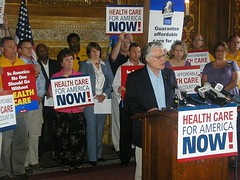Warning: Undefined array key "adf" in /home4/hpvcxhmy/public_html/wp-content/plugins/similarity/similarity.php on line 69
Warning: Undefined array key "sim_pages" in /home4/hpvcxhmy/public_html/wp-content/plugins/similarity/similarity.php on line 70
It’s back – the bill that just won’t die. Let’s first explain why this is such a bad bill that I never pass up an opportunity to oppose it. First, it’s unconstitutional and both sides are compromising the integrity of their ideals in order to produce this bad bill. Second, this is an example of governing by exception which is a long-term recipe for disaster. Having only states be represented in Congress is good, except that we want to treat D.C. more like a state. The current census apportionment process is good, except that Utah felt bad about not getting an extra seat on a technical sliver. Long-term the only people who come out ahead when governing by exception are the exploiters who prefer to live in loopholes rather than being ensnared by the system that they are taking advantage of. These are the same people who rarely if ever actually contribute anything to the society in return for playing the leeches role.
There are two very good ideas in this bill which should be pursued without compromise. The first is giving D.C. a voting representative in the House. Any citizen who is subject to the same federal tax laws as the citizens of the states should have a voting representative in Congress – as far as I know that is only D.C. but that rule would apply to any citizen who did not live in a state whether we started taxing American Samoa or Puerto Rico the same as we do for the 50 states. The privilege of representation in the House should be based on the responsibility to pay taxes because taxation is the primary responsibility of the House. Representation in the Senate should be a privilege limited to full statehood.
The second good idea in the bill is the expansion of the House. This should be much more than two seats. In fact what we need is a bill (probably an amendment) that defines the size of the House as a function of population by setting the maximum number of citizens that a Representative in the House may represent. While I would argue that the size of the house should be multiples of its current size even setting such a ration to such an unmanageable number as 500,000 citizens per representative would be an improvement over this static “435 seats in the House” that we have currently. (That would add somewhere near 100 new representatives – as opposed to the paltry 2 being proposed in this bill.)
While I am not a fan of legislative manipulation tactics (such as the NRA killing the bill previously by attaching an amendment that would curtail the gun laws in D.C.) I have to say that it is better to prevent a law from passing using such tactics than it is to enact a law using such tactics (such as slipping the bill into a “must pass” defense appropriations bill as they are talking about trying now).
The fact that the people pushing this bill have not even proposed an amendment to give D.C. the voting representative they deserve demonstrates that they are more interested int he power grab than they are in actually helping the people of D.C. If they were serious about the issue they would at least be making that kind of proposal even if they also pursued this unconstitutional path.

